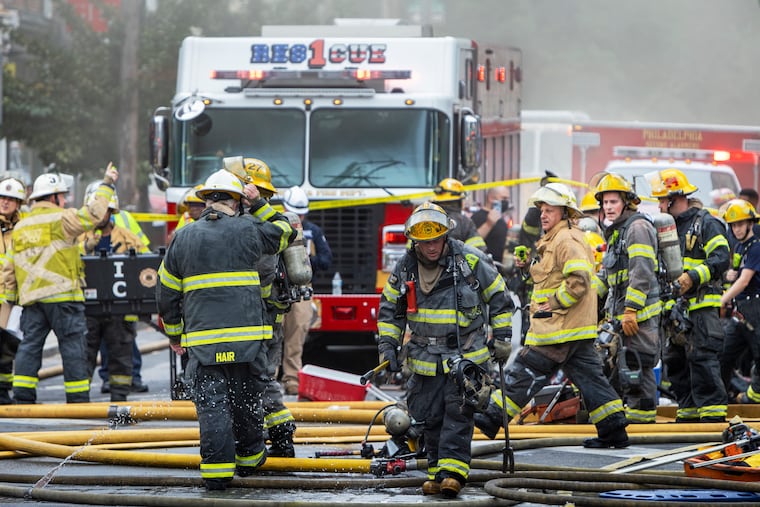Philly will reopen the last of the fire companies that were controversially closed during the 2009 recession
Three companies will reopen, thanks in part to a $22 million federal grant announced this week. That means all seven companies that were shuttered 15 years ago will reopen their doors.

Philadelphia will reopen three fire companies that were shuttered in 2009 as a cost-cutting measure, allowing Mayor Jim Kenney to fulfill an original campaign promise three months before he leaves office.
The reactivation, made possible by a $22.4 million federal grant announced this week, means that all seven companies that closed amid the recession will have been reopened. The companies will serve parts of Kensington, Fishtown, Fairmount, and South Philadelphia — areas that have seen growth over the last decade.
Fire Commissioner Adam K. Thiel said in a statement that the “critical funding” would enable the department to strengthen its emergency response by covering training and salary costs for 72 firefighters over the next three years. After that, the city will cover personnel costs.
A timeline for reopening the companies — Engine 6 in Fishtown, Ladder 1 in North Philadelphia, and Ladder 11 in South Philadelphia — is still under development.
“These companies being restored is where we should be,” said Mike Bresnan, president of Local 22 of the International Association of Fire Fighters, which represents firefighters, EMTs, and paramedics in the city. “It’s going to actually make the citizens of the city, and its firefighters, safer.”
The reopening will bring to an end a nearly decade-long project to restore the seven companies that were decommissioned under former Mayor Michael Nutter, who advocated for closing them amid a massive budget shortfall. The closures, he said at the time, would save the city roughly $10.5 million per year and would keep response times within national standards.
But the firefighters union was incensed by the closures. In 2015, it helped get Kenney — the son of a firefighter — elected mayor. A year later, Kenney hired Thiel, who has said one of his primary goals as head of the department was to restore the fire companies.
“They never should have been closed in the first place,” Thiel said in 2019 when four were reopened, also thanks to a federal grant. “This is a core service. It’s a critical service.”
The closures came up again in January 2022 when 12 people, nine of them children, died in a rowhouse fire in Fairmount in what was one of the deadliest tragedies in Philadelphia history. The blaze, which started after a child accidentally set fire to a Christmas tree, broke out about a mile away from where Ladder 1 had once been stationed near 15th and Parrish Streets.
» READ MORE: After Fairmount fire, so many what-ifs remain | Jenice Armstrong
Firefighters arrived within four minutes of 911 calls, but Bresnan still questioned if even a one-minute faster response could have made a difference. He lobbied President Joe Biden in the days after the fire, asking for funding through the Federal Emergency Management Agency’s program known as SAFER, or Staffing for Adequate Fire and Emergency Response. The program is designed to help fire departments hire and train staff.
The city did not win a grant last year. But the department applied again, and found out in September it won enough funding to restore the three companies.
Bresnan said he has no doubt the reactivations will help keep residents and firefighters safer.
“Every fire company that responds to a fire, from the battalion chief to the medic unit to the ladder company, they all have specific roles to put the fire out and reduce risk,” he said. “So when we have more workers there quicker, that’s the name of the game.”